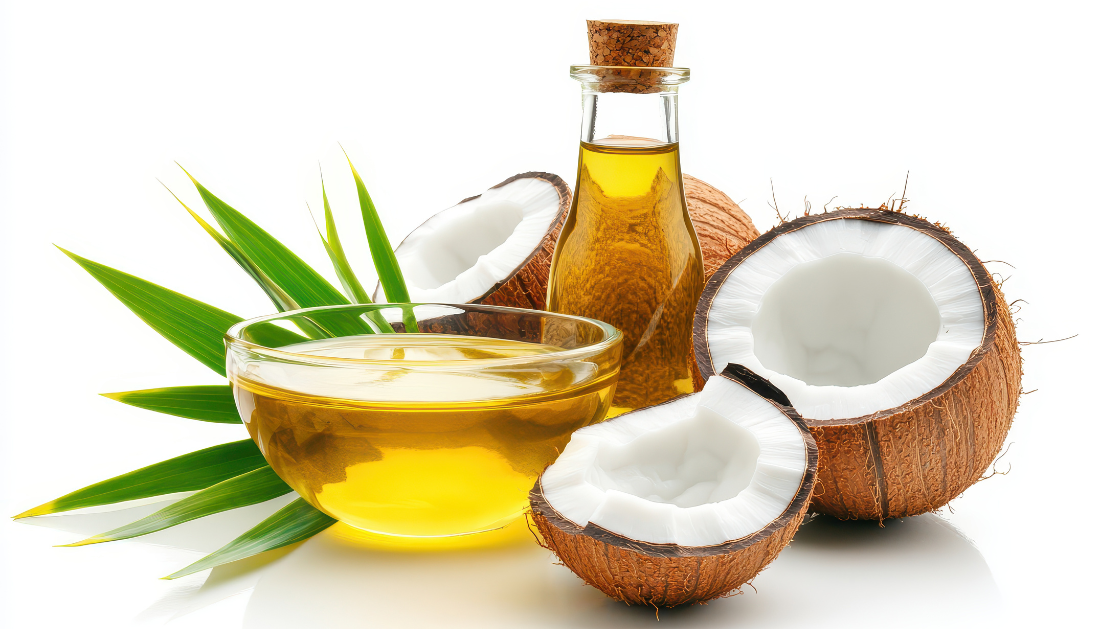

A review of the advantages and difficulties of tropical oils was conducted and published in BMC Public Health.
Tropical oils, such those from coconuts and palms, are essential to African native cuisines and have cultural and historical value. Tropical oils are prized for their special properties, but because of controversy surrounding their use, it is necessary to examine both the advantages and disadvantages in terms of health.
There are several uses for palm oil in the culinary, cosmetics, and other industries. It holds a major position in tropical regions due to its economic relevance, however the high quantities of saturated fats have caused concerns.
With its many uses in food, medicine, and cosmetics, coconut oil is also well-liked throughout the tropics. But the main reason for caution when it comes to coconut oil consumption is its high saturated fat content.
Some research have connected the consumption of tropical oils to an increased risk of cardiovascular disease, while other studies have revealed both beneficial and bad health consequences related with these oils. Therefore, it is crucial to assess the effects of tropical oils on health.
About the Study
In order to assess the advantages and disadvantages of consuming tropical oil for health, researchers carried out a scoping review for the current study. The databases JSTOR, PubMed, Central, Google Scholar, ProQuest, and Dimensions AI were searched for pertinent research.
Eligible research employed primary data and reviews, or they looked at the advantages and difficulties associated with using tropical oils. Preprints, commentary, conference papers, editorials, letters, and works published prior to 2015 were not included.
Following the duplication of entries, entire texts were examined and titles and abstracts were vetted. Information was gathered about the demographic, research features, health advantages, and drawbacks of ingesting tropical oils.
A thematic analysis was then conducted to examine the shared advantages and difficulties from a subset of the research. In order to look into the patterns in the literature, a narrative synthesis was also conducted.
Results
More than 7,000 records were found using the search protocol. 64 records made it through the title/abstract screening process and deduplication were chosen for full-text examination.
In the end, a total of 27 studies were chosen for the scoping review. With 13 studies apiece, palm and coconut oil were the most researched tropical oils. The majority of research was done in Malaysia.
Three randomized controlled trials, twenty-one reviews, and the remaining papers were either experimental designs, cross-sectional surveys, or qualitative investigations.
The advantages of tropical oils were divided into two categories: pharmacological and nutritional. There are vitamins A and E in palm oil. While vitamin E is essential for general health, vitamin A aids in ocular rewetting.
Both coconut and palm oils are rich in nutrients that are necessary for growth. Additionally, palm oil’s application in the making of baby milk underscores its significance in the feeding of young children. All things considered, processed foods are made in large part using tropical oils. Preclinical and clinical benefits were used to categorize the pharmacological advantages of tropical oils.
Consuming palm oil has been linked to decreased body fat and weight loss. On the other hand, eating palm kernel oil may cause you to gain weight.
Anti-aging, anti-inflammatory, wound-healing, and antioxidant qualities are all present in tropical oils. Additionally, blood sugar levels and the risk of diabetes and other non-communicable diseases have been shown to be lowered by palm oil.
It has been discovered that coconut oil enhances immunity, reduces weight, and improves cognition. It has been suggested that using coconut and palm oil lowers cholesterol and may help avoid coronary heart disease. Furthermore, while palm oil has been connected to a lower risk of cancer, palm kernel oil has been linked to neuromotor development.
The issues or worries surrounding tropical oils were grouped into different categories. Vitamin E can be weakened by prolonged or frequent use of palm oil at high temperatures. Palm oil production and refining deplete vitamin E, leading to potential shortages.
Conversely, consuming more palm oil can increase the chance of developing diabetes mellitus and cause an overabundance of vitamin E. Additionally, it has been stated that reactive oxygen species produced by palm oil have the potential to harm DNA.
Overconsumption of palm oil has been connected to acrylamide production at frying temperatures, high blood pressure, coronary artery disease, and some malignancies.
Furthermore, there was a correlation found between a higher frequency of obesity and increasing intake of coconut and palm oil. Variations in palm oil processing have been connected to microbial contamination, and the use of compromised materials in palm oil production can lower oil quality.
In conclusion
All things considered, tropical oils are rich in antioxidant, wound-healing, and anti-inflammatory qualities and offer several health benefits (in eye health, immunity, and growth).
These oils lower blood sugar, cholesterol, and help control obesity. However, continuous use of tropical oils can degrade vitamin E, and excessive use might result in vitamin overdosage.
Risks for diabetes, acrylamide production, hypertension, cancer, and coronary heart disease are further health issues.
Overall, the results underscore the advantages and disadvantages of tropical oils for health as well as the necessity of quality assurance, education, and moderation in both production and consumption.
For more information: Tropical oils consumption and health: a scoping review to inform the development of guidelines in tropical regions, BMC Public Health, doi: 10.1186/s12889-024-19949-x
more recommended stories
 Emotional Processing for Chronic Pain Relief
Emotional Processing for Chronic Pain ReliefA groundbreaking clinical trial led by.
 Egg White Proteins for Hypertension
Egg White Proteins for HypertensionEgg white proteins for hypertension have.
 Limited Health Care Access During Disasters Delays Colorectal Cancer Diagnoses
Limited Health Care Access During Disasters Delays Colorectal Cancer DiagnosesNatural disasters like Hurricanes Irma and.
 Ethical Issues in Human-AI Relationships
Ethical Issues in Human-AI RelationshipsAs artificial intelligence becomes increasingly lifelike.
 Vegetarian Diets and Healthy Aging: Does Diet Quality Make a Difference?
Vegetarian Diets and Healthy Aging: Does Diet Quality Make a Difference?Vegetarian diets are widely recognized for.
 Mental Health Pros May Miss Bulimia Signs – Here’s Why
Mental Health Pros May Miss Bulimia Signs – Here’s WhyA recent study by the University.
 New Study Questions Fluid Restriction in Heart Failure Management
New Study Questions Fluid Restriction in Heart Failure ManagementA groundbreaking study presented at the.
 Semen Quality as a Predictor of Long-Term Health
Semen Quality as a Predictor of Long-Term HealthA landmark study published in Human.
 Who Should Take Supplements? Experts Weigh In
Who Should Take Supplements? Experts Weigh InA comprehensive review published in The.
 Can Heatwaves Make You Age Faster?
Can Heatwaves Make You Age Faster?A recent study published in Science.

Leave a Comment